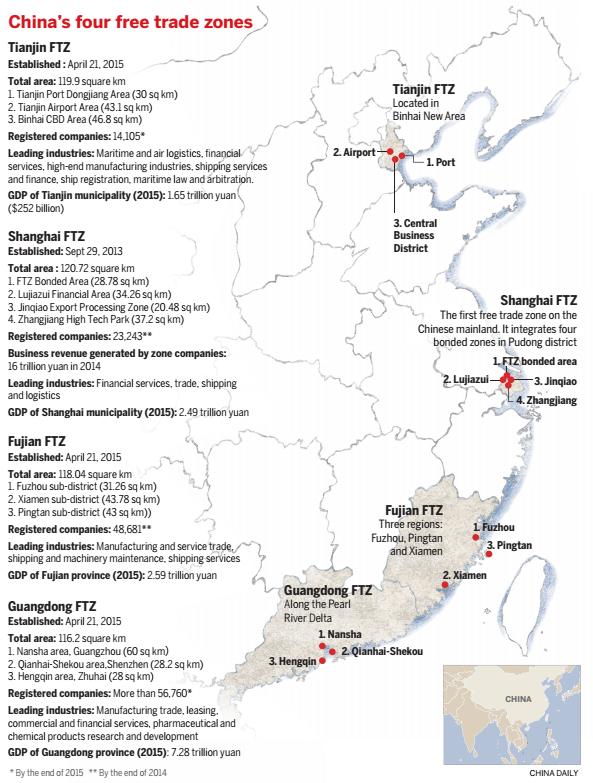
Local trade areas to feature prominently in next stage of the country's growth
Every stage of China's development can be likened to a sporting event played by local governments.
Since the start of the 1990s, the areas in which local authorities have competed include foreign direct investment, new airports with direct flights to popular overseas destinations, sprawling urban plans featuring exotic public buildings or office buildings, and high-speed rail services.
But what next, with the economy undergoing a difficult transition and almost every industry seeing a slowdown in growth?
News emerging from provincial-level policymaking meetings held before the annual session of the National People's Congress in March is that setting up local free trade zones will mark the next stage of the nation's development.
Local governments will embark on a new round of competition to obtain central government approval for such zones and to show who can run a local FTZ most successfully.
Commerce officials say that the competition will probably continue throughout the nation's 13th Five-Year Plan (2016-20).
Also called tariff-free zones, FTZs are areas within which goods can be imported, processed and exported without going through customs inspections. Foreign investors can set up facilities in industries that are restricted elsewhere in the country.
FTZs are designed to provide greater access and convenience for foreign companies to expand in China and for Chinese companies to move money abroad — in diverse services and financial operations, as well as in manufacturing.
A Frenchman in a coastal Chinese city has combined his zeal for work with passion for life, writes Raymond Zhou.

One of the potentially most traumatic things a girl has to go through is finding a new hairdresser.